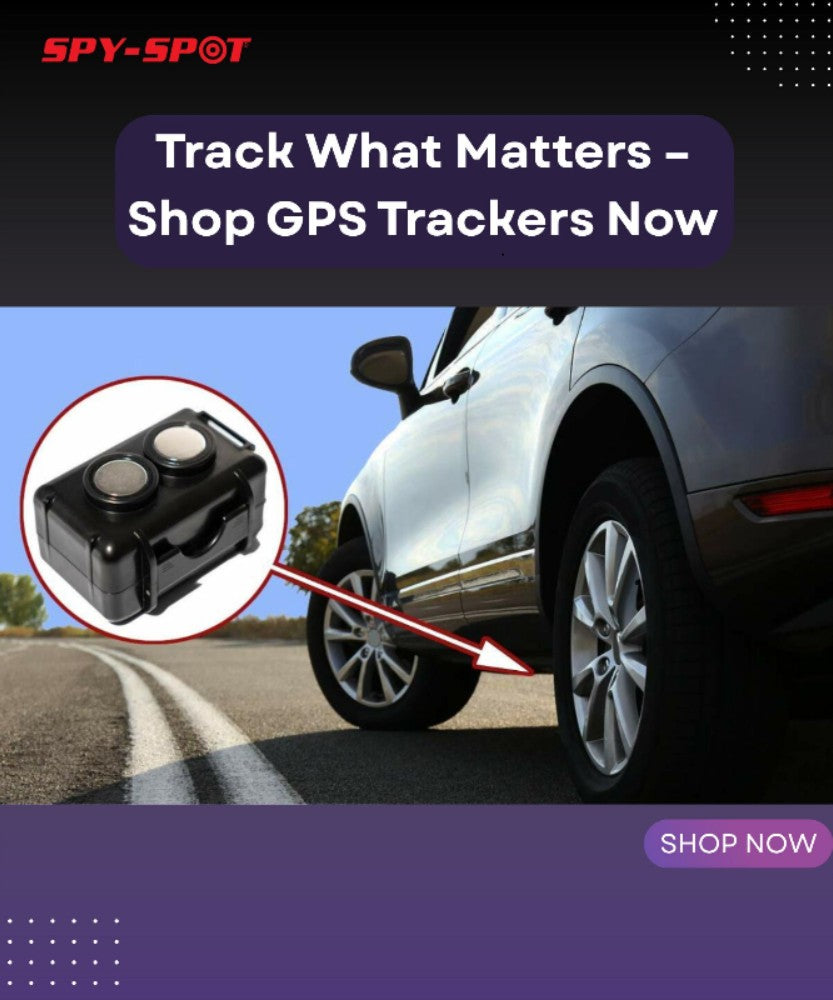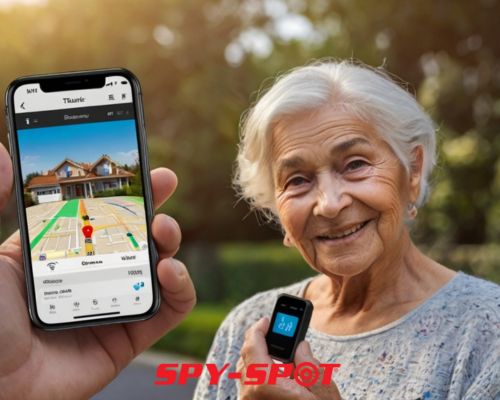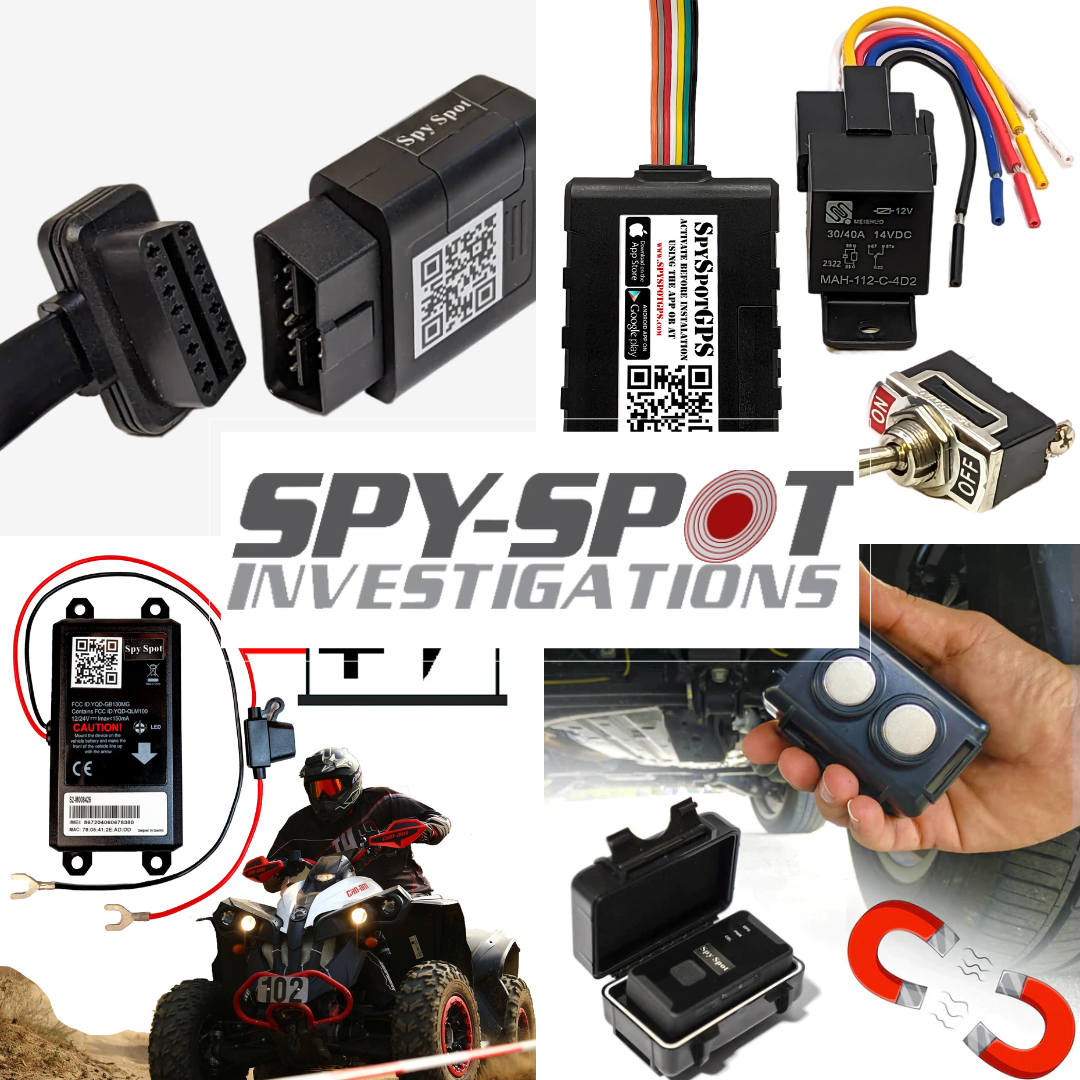Boat theft is no joke - it happens more than most people think. According to the National Insurance Crime Bureau, thousands of boats get stolen every year, and a lot of them never get recovered.
Plus there's always that worry about where your boat is when you're not around, especially if you keep it at a marina or on a trailer somewhere.
Weather can move boats around, thieves can take them, or they might just drift away if something goes wrong with the mooring.
Types of GPS for Boats
There are several types of GPS marine systems designed for different purposes, including navigation, tracking, and security. Here are the main types:

1. Fixed-Mount GPS Systems
Fixed-mount GPS units are permanently installed on the boat and typically come with a larger screen that displays detailed charts and navigation information. These systems are ideal for boaters who frequently travel long distances or navigate complex waterways.
Key Features:
-
Larger Display: Easier to read, especially in rough conditions.
-
Chartplotter Functionality: Displays nautical charts and allows you to plot your course.
-
Multiple Functions: Includes GPS, sonar, radar, and even autopilot integration.
Best For:
-
Serious boaters who need an all-in-one system for navigation.
-
Boats that require a permanent GPS solution with advanced features.
Recommendation: While Spy Spot specializes in tracking devices, if you need a comprehensive chartplotter or navigation system, look for GPS marine units that integrate radar and sonar to ensure safe navigation.
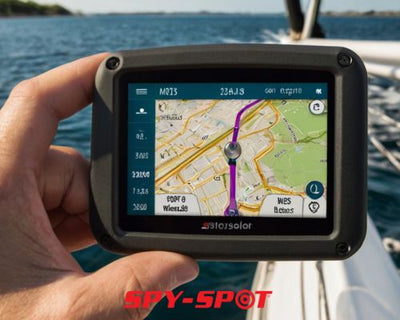
2. Handheld GPS Devices
Handheld GPS devices offer portability and flexibility. These compact devices are ideal for boaters who need a backup GPS or a portable solution they can take on different boats. They are battery-powered and can be easily carried on and off the vessel.
Key Features:
-
Portable: Can be moved between boats or carried onshore.
-
Weatherproof: Designed to withstand marine conditions.
-
Battery-Powered: No need for a permanent power source.
Best For:
-
Boaters who need flexibility and portability.
-
Smaller boats or kayaks that don’t have room for a fixed-mount system.
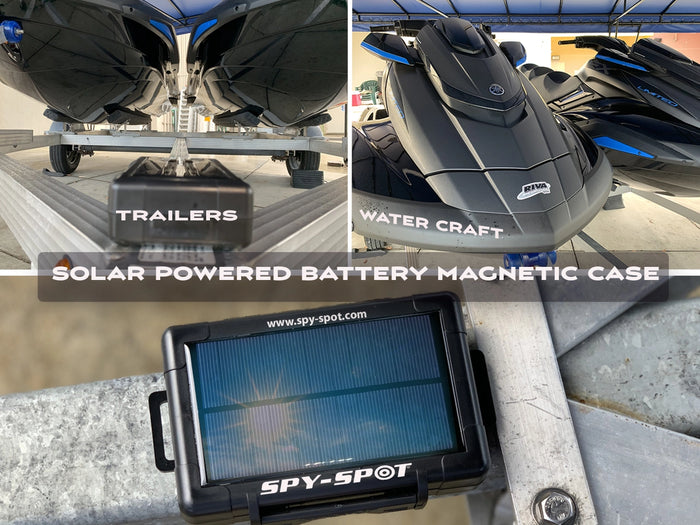
3. Portable GPS Trackers for Boats
Portable GPS trackers are designed to monitor the location of your boat in real-time, making them perfect for security purposes.
They allow you to track the boat’s position and receive alerts if it moves unexpectedly. This is an excellent solution for those who want to monitor their vessel while it’s docked or anchored.
Key Features:
-
Portable
-
Real-Time Tracking: Monitors your boat’s location in real-time via a mobile app.
-
Geo-Fencing Alerts: Sends notifications if your boat leaves a designated area.
-
Long Battery Life: Many trackers offer extended battery life, which is perfect for long trips or extended dockings.
Best For:
-
Boat owners looking for enhanced security.
-
Monitoring boats when they are docked, anchored, or moored.
Recommendation:
If you already own a mini portable GPS device, make sure you acquire a weatherproof magnetic case for it, so it’ll stay safe while taking your boat out to the sea.
We've seen people try to use cheap vehicle trackers on boats and they usually last maybe a few months before they stop working.
We've seen people try to use cheap vehicle trackers on boats and they usually last maybe a few months before they stop working.
7 Best GPS Trackers for Boats
1. Spy Spot Professional Marine Fleet Tracker - Best for Commercial Use
If you're running a charter business, fishing fleet, or any operation with multiple boats, this professional marine tracker is designed specifically for commercial marine operations.
It provides comprehensive fleet management capabilities that go way beyond basic tracking.
Spy Spot developed this system after working with commercial fishing operations and charter companies that needed more than just location tracking. The result is a comprehensive marine fleet management platform that can help improve operations and reduce costs.
Key Features:
-
Multi-vessel fleet management dashboard
-
Captain and crew behavior monitoring
-
Detailed operational reporting and analytics
-
Maintenance scheduling and engine hour tracking
-
Fuel consumption monitoring and optimization
-
Trip logging for charter operations
-
Emergency response coordination
-
Insurance compliance reporting
Technical Specs:
-
4G LTE with satellite backup options
-
Marine-grade IP67 waterproof housing
-
Professional installation with redundant systems
-
Enterprise-grade data security
-
API integration capabilities
-
Real-time weather and sea condition alerts
-
Multiple communication channels
Pros:
-
Comprehensive fleet management saves operational costs
-
Detailed reporting for insurance and regulatory compliance
-
Captain behavior monitoring improves safety
-
Maintenance alerts reduce downtime and engine problems
-
Fuel monitoring can significantly reduce operating expenses
-
Emergency coordination features improve crew safety
-
Bulk pricing for multiple vessels
-
Dedicated marine fleet support team
Cons:
-
Higher monthly cost for commercial features ($49/month per vessel)
-
Complex system requires training for optimal use
-
Overkill for recreational boat owners
-
Professional installation required for full feature set
-
Minimum vessel requirements for best pricing
This boat gps system is definitely overkill for recreational boaters, but for commercial operations it can pay for itself through improved fuel efficiency, better maintenance scheduling, and enhanced safety compliance. Many commercial operators see ROI within the first season.
2. Spy Spot GB130MG Waterproof GPS Tracker - Best Overall
This is probably the most popular marine tracker out there, and for good reason. The GB130MG is built specifically for marine use with an IPX7 waterproof rating. It's got a solid magnetic case that sticks to any metal surface on your boat pretty securely.
Spy Spot designed this tracker after getting feedback from actual boat owners about what they needed. The result is a device that actually works in real marine conditions instead of just claiming to be "marine ready" like some competitors.
The waterproof rating means it can handle being submerged up to 1 meter for 30 minutes, which is way better than most trackers that just claim to be splash resistant.
Key Features:
-
IPX7 waterproof rating (can handle submersion)
-
6-month battery life with typical use
-
Real-time tracking every 10 seconds when active
-
Geofencing alerts with customizable boundaries
-
Strong neodymium magnetic mounting
-
Shock and vibration resistant design
-
Temperature monitoring capabilities
Technical Specs:
-
4G LTE connectivity with 3G fallback
-
Built-in rechargeable lithium battery (10,000 mAh)
-
Dimensions: 4.1" x 2.6" x 1.2"
-
Weight: 8.8 oz
-
Operating temperature: -4°F to 140°F
-
GPS accuracy: typically within 10 feet
-
Update intervals: configurable from 10 seconds to 24 hours
Pros:
-
Actually waterproof, not just water resistant
-
Long battery life means less maintenance and charging
-
Easy magnetic installation requires no tools or modifications
-
Reliable cellular connection with well-designed antenna
-
Good mobile app with intuitive interface and features
-
Built-in theft recovery features and alerts
-
Can set multiple geofences for different areas
-
Strong customer support from Spy Spot
Cons:
-
Monthly subscription required ($25/month adds up over time)
-
Magnetic mount might not work on fiberglass boats without metal surfaces
-
Higher upfront cost than basic options ($199 device cost)
-
Subscription fees are ongoing expense to consider
The tracking accuracy is really good - usually within 10 feet in open areas, sometimes even better.
The geofencing feature sends instant alerts if your boat moves outside a set area, which is great for theft protection or knowing if weather moved your boat from its slip.
Battery life depends on how often you check it and what update interval you set, but most people get 4-6 months between charges even with regular checking.
3. Spy Spot 4G LTE Hardwired GPS Tracker with Kill Switch - Best for Theft Prevention
If you're serious about boat security and have a valuable vessel, this hardwired option is definitely worth considering.
It connects directly to your boat's electrical system and includes a kill switch feature that can disable the engine remotely, which is pretty much the ultimate theft deterrent.
The kill switch works by interrupting the ignition circuit, so even if thieves manage to hot-wire your boat somehow, they still can't start the engine.
It's the kind of setup that makes insurance companies happy and often qualifies you for discounts on your boat insurance premiums.
Key Features:
-
Hardwired installation for permanent, reliable power
-
Remote engine disable capability via smartphone
-
Tamper alerts if someone tries to mess with the system
-
Hidden installation makes it nearly impossible to detect
-
Real-time tracking with no battery life concerns
-
Backup battery system for power outages
-
Multiple relay outputs for controlling other boat systems
Technical Specs:
-
12V DC power input (compatible with most boat electrical systems)
-
4G LTE with 3G fallback connectivity
-
Built-in backup battery provides 72 hours runtime
-
GPS accuracy within 6 feet typically
-
Professional installation strongly recommended
-
Weatherproof housing rated to IP67 standards
-
Multiple input/output options for accessories
Pros:
-
Never needs charging since it runs off boat power
-
Kill switch feature stops thieves completely
-
Very hard to detect once properly installed by professional
-
Instant tamper notifications sent to your phone
-
Works even if main power is cut thanks to backup battery
-
Can control other boat systems remotely (lights, pumps, etc.)
-
Insurance discounts often available with documented installation
-
Extremely reliable since there's no battery to die
Cons:
-
Requires professional installation ($200-400 typically depending on boat)
-
Higher upfront investment ($299 device plus installation costs)
-
Involves permanent modification to boat's electrical wiring
-
Higher monthly subscription fees ($35/month vs $25 for battery units)
-
More complex to remove if you decide to sell the boat
The kill switch feature is really the main selling point here. If someone steals your boat, you can disable the engine from your smartphone anywhere in the world as long as you have internet.
The backup battery keeps the system working for up to 72 hours even if thieves cut the main power, which gives you plenty of time to track them down and alert authorities.
4. Bouncie 4G LTE GPS Tracker - Best for Real-Time Monitoring
Bouncie makes a solid tracker that's really popular with car owners, and it works pretty well on boats too, especially for people who want detailed real-time monitoring.
It's not specifically designed for marine use but comes in a weatherproof case that handles light marine conditions okay.
The real strength of the Bouncie system is the mobile app and the real-time tracking features.
Updates come in really fast - like every 15 seconds when the boat is moving - which makes it excellent for monitoring your boat in real-time, maybe if someone else is using it or if you want to keep an eye on a charter captain.
Key Features:
-
Real-time location updates every 15 seconds
-
Detailed trip history and comprehensive reports
-
Speed monitoring with customizable alerts
-
Multiple geofencing zones
-
Family sharing capabilities for multiple users
-
Driving behavior monitoring (useful for boat operators)
Technical Specs:
-
4G LTE connectivity
-
Built-in rechargeable battery
-
Optional OBD-II connection for some boats
-
Dimensions: 2.7" x 1.5" x 1"
-
Battery life: 2-3 weeks with active use
-
Update frequency: configurable from 15 seconds to 1 hour
Pros:
-
Really good mobile app interface with tons of features
-
Affordable monthly service cost ($20/month)
-
Easy OBD-II installation option on boats that have the port
-
Detailed trip reporting shows exactly where you went
-
Speed alerts help you monitor how your boat is being used
-
Multiple family members can access the tracking
-
Good customer service and support
Cons:
-
Only IPX5 rated, so not fully waterproof for marine use
-
Limited battery life means frequent charging (2-3 weeks)
-
Originally designed for vehicles, not boats specifically
-
May struggle in harsh marine environments long-term
-
OBD-II port isn't available on all boat models
5. LandAirSea 54 GPS Tracker - Best Battery Life
The LAS 54 has built a reputation for having exceptional battery life - up to 6 months on a single charge depending on your settings and usage patterns. It's got a strong magnetic mount and decent water resistance, though it's not quite full marine waterproofing.
This tracker is popular because it just works without much fuss or maintenance. You set it up, stick it on your boat, and basically forget about it for months at a time. The battery performance is genuinely impressive compared to most other options in this price range.
Key Features:
-
Up to 6-month battery life with conservative settings
-
Strong neodymium magnetic mount system
-
Weatherproof housing with IP65 rating
-
Text and email alert notifications
-
Historical tracking with detailed breadcrumb trails
-
Multiple types of alerts and notifications
Technical Specs:
-
4G LTE with 2G fallback for coverage
-
Large 5000 mAh rechargeable battery
-
Dimensions: 3.75" x 2.4" x 1.1"
-
Weight: 5.5 oz
-
Operating temperature range: -20°F to 158°F
-
Magnet strength: 35 pounds pull force
Pros:
-
Excellent battery performance for long-term monitoring
-
Really strong magnet holds securely in rough conditions
-
Simple, straightforward setup process
-
Competitive monthly pricing ($20/month for service)
-
Works well for boats that sit unused for long periods
-
Decent customer support and documentation
-
Good value for the price point
Cons:
-
Only weather resistant, not fully waterproof like marine-specific units
-
Somewhat basic app features compared to more expensive competitors
-
Slower update intervals to preserve battery life
-
Limited geofencing options and customization
-
No advanced features like remote disable or kill switch
6. Americaloc GL300W Mini Portable GPS Tracker - Best Portable Option
This compact tracker is about the size of a large matchbox, maybe a little bigger. The main advantage is that it's portable and easy to move between different boats or hide in small spaces around your vessel. The small size makes it really versatile for different applications.
Being portable means you can use one tracker for multiple boats, or move it around your boat to different hiding spots to keep potential thieves guessing. Some people really like this flexibility, especially if they have more than one watercraft or want to be able to take it with them.
Key Features:
-
Ultra-compact design smaller than most smartphones
-
Easily portable between different boats or vehicles
-
Built-in SOS emergency button for safety
-
Waterproof case available as separate purchase
-
Long standby time when not actively tracking
-
Multiple mounting options including magnetic
Technical Specs:
-
3G/4G connectivity
-
1000 mAh rechargeable battery
-
Dimensions: 2.7" x 1.9" x 0.9"
-
Weight: only 2.4 oz
-
Active tracking time: 1-2 weeks depending on usage
-
Standby time: up to 3 weeks
Pros:
-
Very small size makes it easy to hide discreetly
-
Good option if you have multiple boats or vehicles
-
Emergency SOS feature adds safety value
-
Reasonable monthly cost compared to others ($18/month)
-
Easy to hide in small spaces or compartments
-
Lightweight design won't affect boat performance
Cons:
-
Short active tracking time requires frequent charging
-
Needs separate waterproof case for proper marine use
-
Weak magnetic mount not suitable for rough water conditions
-
Basic mobile app with limited advanced features
-
Small battery capacity means frequent maintenance
7. Garmin inReach Mini 2 - Best for Offshore Use
For serious offshore boating, satellite communication beats cellular coverage every single time. The Garmin inReach works literally anywhere on the planet where you can see the sky and includes emergency SOS that connects directly to professional rescue coordination centers.
This isn't really a traditional GPS tracker in the same sense as the others - it's more of a satellite communicator that happens to also track your location. But for offshore use, it's probably the most important safety device you can carry on your boat.
Key Features:
-
True global satellite coverage (works anywhere)
-
Two-way text messaging via satellite
-
Emergency SOS connects to professional rescue services
-
Weather updates and marine forecasting
-
Completely waterproof design built for marine use
-
Navigation features and waypoint marking
Technical Specs:
-
Uses Iridium satellite network for global coverage
-
IPX7 waterproof rating for marine environments
-
1800 mAh rechargeable battery
-
Dimensions: 4.0" x 2.0" x 1.0"
-
Weight: 3.5 oz
-
Battery life: up to 14 days in tracking mode
Pros:
-
Works anywhere on earth with clear view of sky
-
True emergency communication to professional rescue services
-
Fully waterproof design specifically for marine conditions
-
Weather forecasting capability very useful offshore
-
No cellular dead zones ever - always connected
-
Two-way messaging keeps family informed of your status
Cons:
-
Very expensive both upfront and monthly ($400+ device, $35+/month minimum)
-
Slower position updates compared to cellular trackers (10 minutes typically)
-
Requires expensive satellite subscription plans
-
Probably overkill for casual coastal boating
-
Complex subscription options can be confusing
Which One Should You Choose?
For most boat owners, the Spy Spot GB130MG hits the sweet spot. It's actually waterproof, has great battery life, and works reliably in real marine conditions. The magnetic mount makes installation super simple.
If theft is your main concern, go with the Spy Spot hardwired system with kill switch. Nothing stops a boat thief like a dead engine, and they can't just remove the tracker like magnetic units.
Commercial operators should seriously consider the Spy Spot Professional Marine Fleet tracker despite the higher cost. The comprehensive fleet management features can actually save money through improved operations, better fuel management, and enhanced safety compliance.
For offshore boating, the Garmin inReach is worth the extra cost. When you're 50 miles from shore with no cell coverage, satellite communication could save your life.
Conclusion
GPS tracking for boats isn't optional anymore - it's essential for protecting your investment and peace of mind. Spy Spot clearly leads the marine GPS tracker market with products actually designed for marine use instead of car trackers marketed to boat owners.
The GB130MG offers the best balance of features, durability, and cost for most boaters, while their hardwired system provides serious theft protection and their fleet tracker serves commercial operations.
Don't forget to factor in monthly costs when deciding - sometimes spending more upfront saves money long-term.
